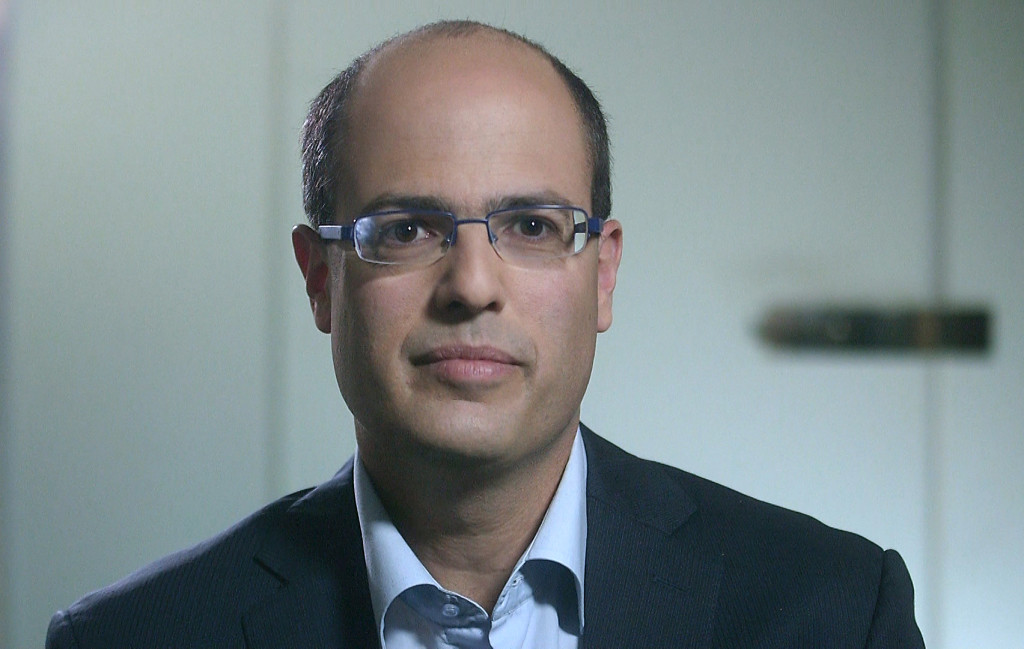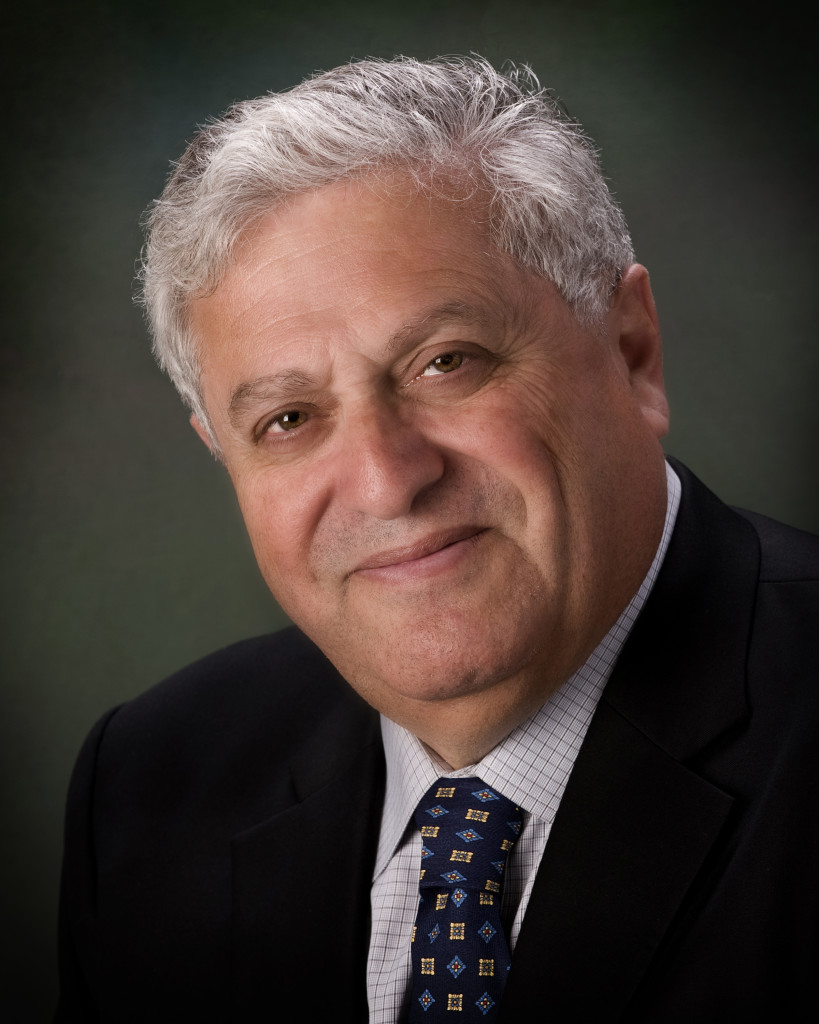Back in the 1970s, science historian James Burke hosted a television series called Connections that looked at how science discoveries in one sphere of life unintentionally and unexpectedly led to breakthroughs in other areas.
As if to add evidence to his thesis, developments in Israel designed for the Iron Dome missile defence system are now being applied to a Canadian electricity grid. And Israeli innovations in water treatment are being tested to determine whether they can apply in reducing waste in the Alberta oil sands.
At the nexus of these collaborations and others stands the Canada-Israel Industrial Research and Development Foundation (CIIRDF), an organization founded in 1994 by the governments of Canada and Israel to fund joint projects, promote technology development and bring together companies from both jurisdictions.
READ: CANADA MUST GET BEHIND ISRAELI HIGH-TECH, ENVOY URGES
The oil sands and electric grid collaborations are but two of the organization’s success stories, said Henri Rothschild, CIIRDF president. But CIIRDF does more than merely create business relationships. “You build profitable business relations,” he said. “You also build profitable human relations.”
In Ontario, Ellis Don, a Canadian construction services company, is teaming up with Rafael Advanced Defence Systems, an Israeli high-tech firm responsible for the development of Iron Dome, to use Israeli-designed applications to operate a Guelph-based electricity grid in the most efficient manner possible.
Rafael’s “autonomous decision-making” software is adaptable to running a power grid, explained Robert Barnes, director of managed services for Ellis Don, who has been at the focal point of relations between the two companies.
The Iron Dome software that evaluates incoming rocket threats and determines which should be shot down and which should be ignored can be adapted to a civilian use, Barnes said.
Right now, Ellis Don is looking at “the commercial application for [Rafael’s] software expertise,” said Geoff Smith, the company’s president and CEO. That could be applied to make power utilization most efficient and place Ellis Don at the forefront of this developing market, he added.
Ellis Don teamed with Rafael following execution of a memorandum of understanding between the two companies, but it was CIIRDF that acted “like a marriage broker” and brought the two sides together, Barnes said.
In its recently released 2016 Impact Report, CIIRDF focuses on the burgeoning business relationship between Canada and Israel.
Over the course of its history, CIIRDF has funded 110 projects involving more than 200 companies from both countries. It has enabled the joint development, marketing and sales of more than 50 technologically improved new products for global markets and generated $60 million in initial sales and $300 to $500 million in additional economic value. Hundreds of people in both countries owe their jobs to CIIRDF projects.
Rothschild has been instrumental in creating the structure that brings together the two sides in innovative and commercially viable projects.
At a time when “China and India are beating a path to Israel to be partners, Canada has the unique opportunity to seize on opportunities as they arise,” he said.
Rothschild suggested that another area on which CIIRDF has focused – promoting the Arab-Israeli business sector in Canada – could bear fruit as well.
READ: ISRAEL’S ENERGY INSPIRES YOUNG CANADIAN ENTREPRENEURS
Last January, CIIRDF teamed with one of the arms of Israel’s National Technology Innovation Authority (NTIA) to bring a delegation of Arab-Israeli industry innovators to Canada to meet with the representatives of Ontario firms. The meeting connected 12 innovative Galilee companies with prospective R&D partner firms from Ontario.
Rothschild believes there is room to grow that part of the Canada-Israel relationship. He has advised Ontario Premier Kathleen Wynne, who is scheduled to visit Israel in May, “to go to Nazareth (a largely Arab city in northern Israel) to reach out to the business and greater community, in light of the potential for business and overall relations between Arab-Israeli community and Ontario.”

Avi Hasson, Israel’s chief scientist and chair of the NTIA, said the Israeli participants in those January meetings reported that “they got very significant business introductions.”
Hasson believes that, in particular, there is room to grow the Canada-Israel relationship in resource-related technologies and in medical applications.
“We’re certainly not experts in oil and gas,” he said. “We’re without natural resource companies. What we found out at conferences and meetings is that when the needs of those companies are explained, there were a lot of Israeli companies that had the technology applicable to that space.”
“No word is more important than collaboration,” he said.
From Hasson’s perspective, “the last few years have been very successful.
“The companies follow the opportunities. They don’t care about the political situation and they respond loud and clear. They recognize the opportunity Canadians and Canadian companies present to them.
“A lot of it is about awareness,” Hasson continued. “We need to expose the capabilities, interests and gaps of each country to each other. That’s a lot of work and CIIRDF plays right into this.”
When it comes to resource development in the Alberta oil sands, provincial legislation sets tough regulatory standards for the industry, including in water use and a reduction in the carbon footprint. That’s where Israel comes in, Rothschild said.
Israel is a country that faces a shortage of fresh water, but “adversity brings ingenuity, the need to be on top of your game,” and so Israel has developed an expertise in water use, which can be employed in the oil sands, he said.

The Canada Oil Sands Innovation Alliance (COSIA) has been “evaluating Israeli technologies. Last year, Israel was the single biggest source of new technologies in areas such as water purification, monitoring, sensors,” Rothschild said.
Tom Reinders is intimately familiar with the Israeli role in technologies that could benefit the oil industry. A technology development engineer at Devon Canada, one of 13 members of COSIA, he’s visited Israel to see first hand what technologies might be available for use in the Canadian oil industry.
Acting as a middleman and leveraging its position as an associate member of COSIA, CIIRDF had presented more than 20 Israeli proposals to COSIA for its consideration.
“Of the 20 plus Israeli technology proposals that were submitted to COSIA through CIIRDF, about half a dozen were selected for further evaluation by COSIA member companies.” Reinders said.
READ: TSX GETS FIRST-EVER ISRAELI BIOTECH LISTING
“Israel’s reputation is strong. I would say the perception is that there is a lot of high-tech being developed in Israel. Certainly on the water side, everyone knows the challenge of water, and people know they’re leaders in water treatment,” he said.
“We want to collaborate and work together to improve environmental performance,” he added.
As described in 2016 Impact Report, “the Canada-Israel R&D project aims to improve the operation, service and maintenance capabilities” of parts of the water treatment process, improve safety, reliability and ultimately boost productivity and profitability.
There are many other areas of bilateral co-operation, midwifed by CIIRDF, that are referenced in the report: in wireless technology, wearable technology for athletes, training surgeons, improvements in cardiac imaging devices, satellite data transmission and more.
As far as Rothschild is concerned, the future is bright and going to get brighter.
“The real story, in an age of innovation, is that Israel is a partner of choice for the world, and that is true of Canada,” he said.
That collaboration helps both sides in developing current business projects and in opening doors for ventures in Europe, China and the United States, he added.






